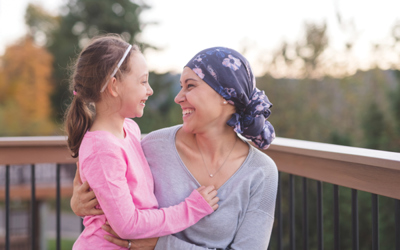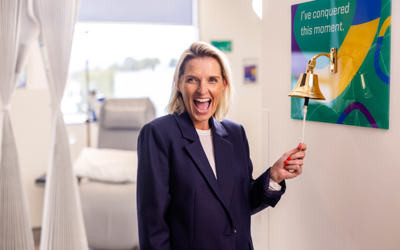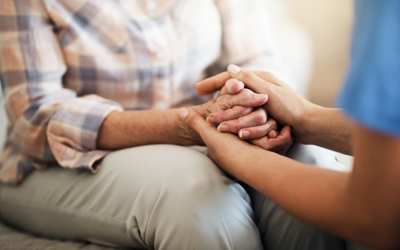What emotional changes might I experience during cancer treatment?
Being diagnosed with cancer and starting treatment can be a very emotional time. Although the focus is on your cancer treatment, your emotional care is just as important as your physical care. Anxiety and depression are common in people affected by cancer. However, for many people these feelings will reduce over time.
What causes these emotional changes?
There are many stressors and challenges people face when diagnosed with cancer. These range from the physical effects of cancer, worry about the treatment and its effectiveness, social isolation, relationships and responsibilities, and work and financial challenges.
Everyone with cancer copes in their own way and there is no right or wrong way to feel. A diagnosis of cancer and starting treatment may cause you to feel a range of emotions such as fear, anger, sadness, disbelief, guilt, loneliness, loss of control and distress.

How can emotional distress be prevented or managed?
You might find your usual ways of coping are not enough to handle the different challenges caused by cancer. There is no single best or right way of coping, but having a few different ways may help you feel a greater sense of control and confidence. Some things that might be helpful include:
Finding out more information
Discussing your diagnosis, prognosis or treatment with your care team
Talking about your feelings
Looking after yourself – doing things that enhance your wellbeing and reduce stress
Each time you visit for treatment, your care team will ask you how you are feeling. It’s important to tell them your concerns about symptoms, emotions or coping. It’s likely that your care team will be able to help. Removing a medical cause of concern (such as nausea or pain) may improve your ability to cope. You might also be referred to other health professionals who can help with psychosocial or practical concerns:
Counsellor
Social worker
Psychologist
Psychiatrist
Peer support groups give you the chance to meet and talk with people who have been or are going through similar experiences and can be helpful. Spiritual care and chaplaincy services may also assist if you experience spiritual concerns.

For support and information on cancer and cancer-related issues, you can call the confidential Cancer Council Helpline on 13 11 20.
Every patient is different, please discuss your own personal situation with your treating doctor.




